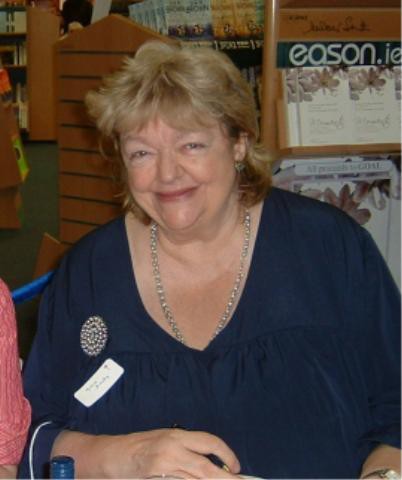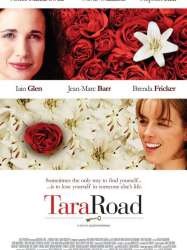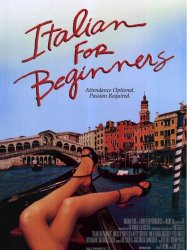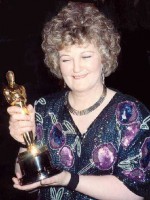Maeve Binchy is a Actor and Scriptwriter Irlandaise born on 28 may 1940 at Dalkey (Irlande)

Maeve Binchy Snell (28 May 1940 – 30 July 2012), known as Maeve Binchy, was an Irish novelist, playwright, short story writer, columnist, and speaker best known for her humorous take on small-town life in Ireland, her descriptive characters, her interest in human nature, and her often clever surprise endings. Her novels, which were translated into 37 languages, sold more than 40 million copies worldwide, and her death, announced by Vincent Browne on Irish television late on 30 July 2012, was mourned as the passing of Ireland's best-loved and most recognisable writer.
Her books have outsold those of other Irish writers such as Oscar Wilde, James Joyce, Samuel Beckett, W. B. Yeats, Seamus Heaney, Edna O'Brien and Roddy Doyle. She cracked the U.S. market, featuring on The New York Times best-seller list and in Oprah's Book Club. Recognised for her "total absence of malice" and generosity to other writers, she finished 3rd in a 2000 poll for World Book Day, ahead of Jane Austen, Charles Dickens, and Stephen King.
Early life and family
Binchy was born on 28 May 1940 in Dalkey, County Dublin (modern-day Dún Laoghaire–Rathdown), Ireland, the oldest child of four. Her siblings include one brother, William Binchy, Regius Professor of Laws at Trinity College, Dublin, and two sisters: Renie (who predeceased Binchy) and Joan Ryan. Her uncle was the historian D. A. Binchy (1899–1989). Educated at the Holy Child Convent in Killiney and University College Dublin (where she earned a bachelor's degree in history), she worked as a teacher of French, Latin, and history at various girls' schools, then a journalist at The Irish Times, and later became a writer of novels, short stories, and dramatic works.
In 1968, her mother died of cancer aged 57. After Binchy's father died in 1971, she sold the family house and moved to a bedsit in Dublin.
Israel
Her parents were Catholics and Binchy attended a convent school. However, a trip to Israel profoundly affected both her career and her faith. As she confided in a Q&A with Vulture:
In 1963, I worked in a Jewish school in Dublin, teaching French with an Irish accent to kids, primarily Lithuanians. The parents there gave me a trip to Israel as a present. I had no money, so I went and worked in a kibbutz — plucking chickens, picking oranges. My parents were very nervous; here I was going out to the Middle East by myself. I wrote to them regularly, telling them about the kibbutz. My father and mother sent my letters to a newspaper, which published them. So I thought, It’s not so hard to be a writer. Just write a letter home. After that, I started writing other travel articles.
Additionally, one Sunday, attempting to locate where the Last Supper is supposed to have occurred, she climbed a mountainside to a cavern guarded by a Brooklyn-born Israeli soldier. She wept with despair. The soldier asked, “What’ya expect, ma’am – a Renaissance table set for 13?” She replied, “Yes! That’s just what I did expect.” Binchy was no longer a Catholic.
Marriage
Binchy, described as "six feet tall, rather stout, and garrulous", confided to Gay Byrne of The Late Late Show that, growing up in Dalkey, she never felt herself to be attractive; "as a plump girl I didn't start on an even footing to everyone else". After her mother's death, she expected to a lead a life of spinsterhood, or as she expressed: "I expected I would live at home, as I always did." She continued, "I felt very lonely, the others all had a love waiting for them and I didn't."
She ultimately encountered the love of her life, however; when recording a piece for Woman's Hour in London she met children's author Gordon Snell, then a freelance producer with the BBC. Their friendship blossomed into a cross-border romance, with her in Ireland and him in London, until she eventually secured a job in London through the Irish Times. She and Snell married in 1977 and, after living in London for a time, moved to Ireland. They lived together in Dalkey, not far from where she had grown up, until Binchy's death. The following was her view of her husband, quoted in The Irish Times after her death:
“
(A) writer, a man I loved and he loved me and we got married and it was great and is still great. He believed I could do anything, just as my parents had believed all those years ago, and I started to write fiction and that took off fine. And he loved Ireland, and the fax was invented so we writers could live anywhere we liked, instead of living in London near publishers.
”
Letter to the President
Files in Ireland's National Archives, released to the public in 2006, feature a request from Maeve Binchy to President Cearbhall Ó Dálaigh asking if he could "receive" her. She wrote, "I know you are extremely busy but I often see in the paper that you 'received' so-and-so and was wondering very simply could I be received too." This request came while she was working for The Irish Times in London in 1975.
Health
In 2002, Binchy "suffered a health crisis related to a heart condition", which inspired her to write Heart and Soul. The book about (what Binchy terms) "a heart failure clinic" in Dublin and the people involved with it, reflects many of her own experiences and observations in the hospital.
Towards the end of her life, Binchy had the following message on her official website: "My health isn't so good these days and I can't travel around to meet people the way I used to. But I'm always delighted to hear from readers, even if it takes me a while to reply."
She suffered with severe arthritis, which left her in constant pain. As a result of the arthritis she had a hip operation.
Death
Binchy died on 30 July 2012. She was 72 and succumbed after a short illness. Gordon was by her side when she died in a Dublin hospital. Just ahead of that evening's Tonight with Vincent Browne and TV3's late evening news, Vincent Browne and then Alan Cantwell, who respectively anchor these shows, announced to Irish television viewers that Binchy had died earlier that evening.
Immediate media reports described Binchy as "beloved", "Ireland's most well-known novelist" and the "best-loved writer of her generation". Fellow writers mourned their loss, including Ian Rankin, Jilly Cooper, Anne Rice, and Jeffrey Archer. Politicians also paid tribute. President Michael D. Higgins stated: "Our country mourns." Taoiseach Enda Kenny said, “Today we have lost a national treasure.” Minister of State for Disability, Equality and Mental Health Kathleen Lynch, appearing as a guest on Tonight with Vincent Browne, said Binchy was, for her (Lynch's) money, as worthy an Irish writer as James Joyce or Oscar Wilde, and praised her for selling so many more books than they managed.
In the days after her death tributes were published from such writers as John Banville, Roddy Doyle, and Colm Tóibín. Banville contrasted Binchy with Gore Vidal, who died the day after her, observing that Vidal "used to say that it was not enough for him to succeed, but others must fail. Maeve wanted everyone to be a success." Numerous tributes appeared in publications on both sides of the Atlantic, including The Guardian and CBC News.
Shortly before her death, Binchy told The Irish Times: “I don't have any regrets about any roads I didn't take. Everything went well, and I think that's been a help because I can look back, and I do get great pleasure out of looking back ... I've been very lucky and I have a happy old age with good family and friends still around.” Just before dying, she read her latest short story at the Dalkey Book Festival.
She once said she would like to die "... on my 100th birthday, piloting Gordon and myself into the side of a mountain".
She was cremated that Friday in Mount Jerome. It was a simple ceremony, as she had requested.
Source : Wikidata
Maeve Binchy

- Infos
- Photos
- Best films
- Family
- Characters
- Awards
Nationality Irlande
Birth 28 may 1940 at Dalkey (Irlande)
Death 30 july 2012 (at 72 years) at Dublin (Irlande)
Birth 28 may 1940 at Dalkey (Irlande)
Death 30 july 2012 (at 72 years) at Dublin (Irlande)
Her books have outsold those of other Irish writers such as Oscar Wilde, James Joyce, Samuel Beckett, W. B. Yeats, Seamus Heaney, Edna O'Brien and Roddy Doyle. She cracked the U.S. market, featuring on The New York Times best-seller list and in Oprah's Book Club. Recognised for her "total absence of malice" and generosity to other writers, she finished 3rd in a 2000 poll for World Book Day, ahead of Jane Austen, Charles Dickens, and Stephen King.
Biography
OverviewEarly life and family
Binchy was born on 28 May 1940 in Dalkey, County Dublin (modern-day Dún Laoghaire–Rathdown), Ireland, the oldest child of four. Her siblings include one brother, William Binchy, Regius Professor of Laws at Trinity College, Dublin, and two sisters: Renie (who predeceased Binchy) and Joan Ryan. Her uncle was the historian D. A. Binchy (1899–1989). Educated at the Holy Child Convent in Killiney and University College Dublin (where she earned a bachelor's degree in history), she worked as a teacher of French, Latin, and history at various girls' schools, then a journalist at The Irish Times, and later became a writer of novels, short stories, and dramatic works.
In 1968, her mother died of cancer aged 57. After Binchy's father died in 1971, she sold the family house and moved to a bedsit in Dublin.
Israel
Her parents were Catholics and Binchy attended a convent school. However, a trip to Israel profoundly affected both her career and her faith. As she confided in a Q&A with Vulture:
In 1963, I worked in a Jewish school in Dublin, teaching French with an Irish accent to kids, primarily Lithuanians. The parents there gave me a trip to Israel as a present. I had no money, so I went and worked in a kibbutz — plucking chickens, picking oranges. My parents were very nervous; here I was going out to the Middle East by myself. I wrote to them regularly, telling them about the kibbutz. My father and mother sent my letters to a newspaper, which published them. So I thought, It’s not so hard to be a writer. Just write a letter home. After that, I started writing other travel articles.
Additionally, one Sunday, attempting to locate where the Last Supper is supposed to have occurred, she climbed a mountainside to a cavern guarded by a Brooklyn-born Israeli soldier. She wept with despair. The soldier asked, “What’ya expect, ma’am – a Renaissance table set for 13?” She replied, “Yes! That’s just what I did expect.” Binchy was no longer a Catholic.
Marriage
Binchy, described as "six feet tall, rather stout, and garrulous", confided to Gay Byrne of The Late Late Show that, growing up in Dalkey, she never felt herself to be attractive; "as a plump girl I didn't start on an even footing to everyone else". After her mother's death, she expected to a lead a life of spinsterhood, or as she expressed: "I expected I would live at home, as I always did." She continued, "I felt very lonely, the others all had a love waiting for them and I didn't."
She ultimately encountered the love of her life, however; when recording a piece for Woman's Hour in London she met children's author Gordon Snell, then a freelance producer with the BBC. Their friendship blossomed into a cross-border romance, with her in Ireland and him in London, until she eventually secured a job in London through the Irish Times. She and Snell married in 1977 and, after living in London for a time, moved to Ireland. They lived together in Dalkey, not far from where she had grown up, until Binchy's death. The following was her view of her husband, quoted in The Irish Times after her death:
“
(A) writer, a man I loved and he loved me and we got married and it was great and is still great. He believed I could do anything, just as my parents had believed all those years ago, and I started to write fiction and that took off fine. And he loved Ireland, and the fax was invented so we writers could live anywhere we liked, instead of living in London near publishers.
”
Letter to the President
Files in Ireland's National Archives, released to the public in 2006, feature a request from Maeve Binchy to President Cearbhall Ó Dálaigh asking if he could "receive" her. She wrote, "I know you are extremely busy but I often see in the paper that you 'received' so-and-so and was wondering very simply could I be received too." This request came while she was working for The Irish Times in London in 1975.
Health
In 2002, Binchy "suffered a health crisis related to a heart condition", which inspired her to write Heart and Soul. The book about (what Binchy terms) "a heart failure clinic" in Dublin and the people involved with it, reflects many of her own experiences and observations in the hospital.
Towards the end of her life, Binchy had the following message on her official website: "My health isn't so good these days and I can't travel around to meet people the way I used to. But I'm always delighted to hear from readers, even if it takes me a while to reply."
She suffered with severe arthritis, which left her in constant pain. As a result of the arthritis she had a hip operation.
Death
Binchy died on 30 July 2012. She was 72 and succumbed after a short illness. Gordon was by her side when she died in a Dublin hospital. Just ahead of that evening's Tonight with Vincent Browne and TV3's late evening news, Vincent Browne and then Alan Cantwell, who respectively anchor these shows, announced to Irish television viewers that Binchy had died earlier that evening.
Immediate media reports described Binchy as "beloved", "Ireland's most well-known novelist" and the "best-loved writer of her generation". Fellow writers mourned their loss, including Ian Rankin, Jilly Cooper, Anne Rice, and Jeffrey Archer. Politicians also paid tribute. President Michael D. Higgins stated: "Our country mourns." Taoiseach Enda Kenny said, “Today we have lost a national treasure.” Minister of State for Disability, Equality and Mental Health Kathleen Lynch, appearing as a guest on Tonight with Vincent Browne, said Binchy was, for her (Lynch's) money, as worthy an Irish writer as James Joyce or Oscar Wilde, and praised her for selling so many more books than they managed.
In the days after her death tributes were published from such writers as John Banville, Roddy Doyle, and Colm Tóibín. Banville contrasted Binchy with Gore Vidal, who died the day after her, observing that Vidal "used to say that it was not enough for him to succeed, but others must fail. Maeve wanted everyone to be a success." Numerous tributes appeared in publications on both sides of the Atlantic, including The Guardian and CBC News.
Shortly before her death, Binchy told The Irish Times: “I don't have any regrets about any roads I didn't take. Everything went well, and I think that's been a help because I can look back, and I do get great pleasure out of looking back ... I've been very lucky and I have a happy old age with good family and friends still around.” Just before dying, she read her latest short story at the Dalkey Book Festival.
She once said she would like to die "... on my 100th birthday, piloting Gordon and myself into the side of a mountain".
She was cremated that Friday in Mount Jerome. It was a simple ceremony, as she had requested.
Usually with
Filmography of Maeve Binchy (4 films)
Actress

Tara Road (2005)
, 1h37Directed by Gillies MacKinnon
Genres Drama
Actors Andie MacDowell, Olivia Williams, Maria Doyle Kennedy, Iain Glen, Johnny Brennan, Sarah Bolger
Roles a restaurant patron.
Rating59%





Two women trade houses without ever having met. They're both looking for an escape from their problems, but by running away, both come to discover a great deal about themselves.
Scriptwriter

How About You... (2007)
, 1h40Genres Drama, Comedy
Actors Hayley Atwell, Vanessa Redgrave, Joss Ackland, Brenda Fricker, Imelda Staunton, Orla Brady
Roles Short Story
Rating65%





Ellie Harris (Hayley Atwell) goes to her sister Kate's (Orla Brady) residential home, Woodlane, in search of a job. Ellie has some trouble adjusting to her new job but quickly befriends a resident named Alice (Joan O'Hara). Ellie decides to have talks with Alice and neglects parts of her job, much to her sister's annoyance. She also has trouble doing what she is told by the residents. Because of her friendship with Alice, Ellie decides to help her feel better by taking her down to the river (which is against the nurse's orders) and giving her marijuana to ease her pain. The next day, however, Ellie finds out that Alice has died.

Tara Road (2005)
, 1h37Directed by Gillies MacKinnon
Genres Drama
Actors Andie MacDowell, Olivia Williams, Maria Doyle Kennedy, Iain Glen, Johnny Brennan, Sarah Bolger
Roles Novel
Rating59%





Two women trade houses without ever having met. They're both looking for an escape from their problems, but by running away, both come to discover a great deal about themselves.

Italian for Beginners (2000)
, 1h52Directed by Lone Scherfig
Origin Danemark
Genres Drama, Comedy, Romantic comedy, Romance
Actors Anders W. Berthelsen, Sara Indrio, Anette Støvelbæk, Ann Eleonora Jørgensen, Peter Gantzler, Bent Meiding
Roles Novel
Rating69%





Three women and three men, all singles, with stressful or unhappy lives, register for an Italian course in a Danish village. The class serves as a way of bringing these various residents of the town, each of whom is dealing with loss or pain, out of their loneliness and into interactions with other people. When the teacher suffers a heart attack during class and ends up dying, the six classmates hold the class anyway and eventually take a vacation to Italy.

Circle of Friends (1995)
, 1h43Directed by Pat O'Connor
Genres Drama, Romance
Actors Chris O'Donnell, Minnie Driver, Saffron Burrows, Alan Cumming, Colin Firth, Aidan Gillen
Roles Novel
Rating65%





Set in 1950s Ireland, the film focuses on the experiences of Bernadette "Benny" Hogan and her two friends, Eve Malone and Nan Mahon. They are characterised early on in childhood, during their First Communion: Benny is the beloved and well-fed only child, Eve the orphan raised by nuns and Nan is destined to be defined by her beauty. The three girls grow up in the small town of Knockglen. Skip to eight years later: Nan has moved on to Dublin years earlier, and Benny and Eve have graduated from the local convent school and are heading to Dublin to attend university.
 Connection
Connection



